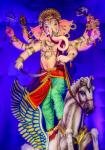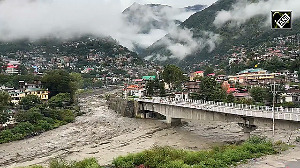Criticising the International Olympic Committee for its refusal to dissociate itself from abuses linked to the preparation of the Beijing Olympics, a leading human rights group has accused the IOC of flouting the spirit and the letter of the Olympic charter with its actions.
"The question isn't whether the IOC is a human rights organisation. It's whether the Olympic movement respects human rights. If it does, remaining silent as China's crackdown intensifies isn't acceptable," said Sophie Richardson, Asia advocacy director of Human Rights Watch.
In a statement released on the eve of the 12-day IOC meeting in Beijing, the group urged the Ethics Commission of IOC to articulate human rights standards for host countries to end the "moral void in which it operates."
The IOC, the HRW said, has not spoken publicly about a wide variety of rights abuses in China, including the ongoing restrictions on foreign media that violate China's formal commitment made to win the right to host the Games and the jailing of two civil rights activists who criticised the Beijing Olympics, Yang Chunlin and Hu Jia, on charges of state subversion.
It also cited the decision to carry the Olympic torch relay through Tibet despite an ongoing crackdown on ethnic Tibetans, a military lockdown of the region, and a denial by the Chinese authorities to allow an international commission of inquiry to go to Tibet.
The HRW urged the Commission, an independent body in charge of elaborating ethical principles based on the values and principles enshrined in the Olympic Charter, to articulate standards compatible with the respect of human rights to guide the Olympic movement.
It also asked the IOC to publicly assess the extent to which current human rights violations linked to the preparation of the Games were violating the commitments made by China at the time of its bid to host the Olympic Games, and to establish a standing mechanism to address human rights concerns.
According to the IOC rules, the principles elaborated by the Ethics Commission must be respected by the IOC and its members, by the cities wishing to organise the Olympic Games, by the Organising Committees of the Olympic Games, by the National Olympic Committees as well as by the participants in the Olympic Games.
"The IOC seems determined to take the Chinese government's line -- that human rights are a political matter and shouldn't be discussed," said Richardson.
"But that's inconsistent with the Olympic movement's original aim of fostering 'respect for universal fundamental ethical principles."





